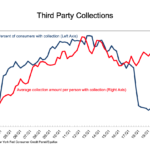A District Court judge in Oregon has denied a defendant’s motion to dismiss after it was sued for allegedly violating the Fair Debt Collection Practices Act over whether filing a garnishment notice is a legal action against a consumer or the consumer’s employer.
A copy of the ruling in the case of Simpson v. Newman, Hesse & Associates can be accessed by clicking here.
The plaintiff wrote a bad check, which was sent to collections. Back in 2005, the plaintiff was sued in a Kansas state court for the unpaid debt and a judgment was entered against him. In the time since the judgment was entered, the amount owed had increased to more than $1,500. In 2018, an order of garnishment was entered in Kansas state court and served on the plaintiff, who had since moved to Oregon, and the plaintiff’s employer, which was in Minnesota. The plaintiff’s employer began garnishing the plaintiff’s wages.
The plaintiff sued, alleging the defendant had violated Section 1692i(a)(2) of the FDCPA, which states that legal action can only be taken “in the judicial district or similar legal entity — (A) in which such consumer signed the contract sued upon; or (B) in which such consumer resides at the commencement of the action.” Since there was no underlying contract and since the action was not taken where the plaintiff is now residing, he filed suit.
The defendant argued that an order of garnishment is not a legal action against a consumer and therefore is not subject to the FDCPA.
However, a ruling from the Ninth Circuit Court of Appeals in Fox v. Citicorp Credit Services and a ruling from the District Court in Oregon in Flores v. Quick Collect, Inc., both ruled that the garnishment action is subject to the 1692i provisions in the FDCPA.
“Consistent with Fox and Flores, the Court concludes the issuance of a writ of garnishment is an action on a debt against a consumer and creditors are obliged to comply with the venue requirements of § 1692i,” wrote Judge Ann Aiken of the District Court for the District of Oregon, Medford Division. “In the present case, there is no dispute that there is no underlying loan agreement and that Plaintiff did not reside in Kansas at the time the writ of garnishment was sought.”









